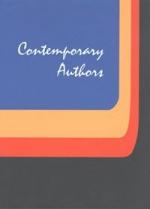|
This section contains 3,601 words (approx. 13 pages at 300 words per page) |

|
SOURCE: "Wilfred Owen and Abram," in Women's Studies, Vol. XIII, No. 1, 1986, pp. 49-61.
In the following excerpt, Musil examines Owen's challenging of patriarchal notions of nationalism, masculinity, and sexuality in his poems.
A week after World War I broke out, Wilfred Owen wrote to his brother, "After all my years of playing soldiers, and then of reading history, I have almost a mania to be in the East, to see fighting, and to serve." He resisted his "mania" for another sixteen months, but by January, 1917, he found himself a commissioned officer at the Front. At first his early enthusiasm for the war survived. "There is a fine heroic spirit about being in France," he wrote in early January and after hearing the guns for the first time reported, "It was a sound not without a certain sublimity." Two days later he wrote home, "There is nothing in all...
|
This section contains 3,601 words (approx. 13 pages at 300 words per page) |

|


